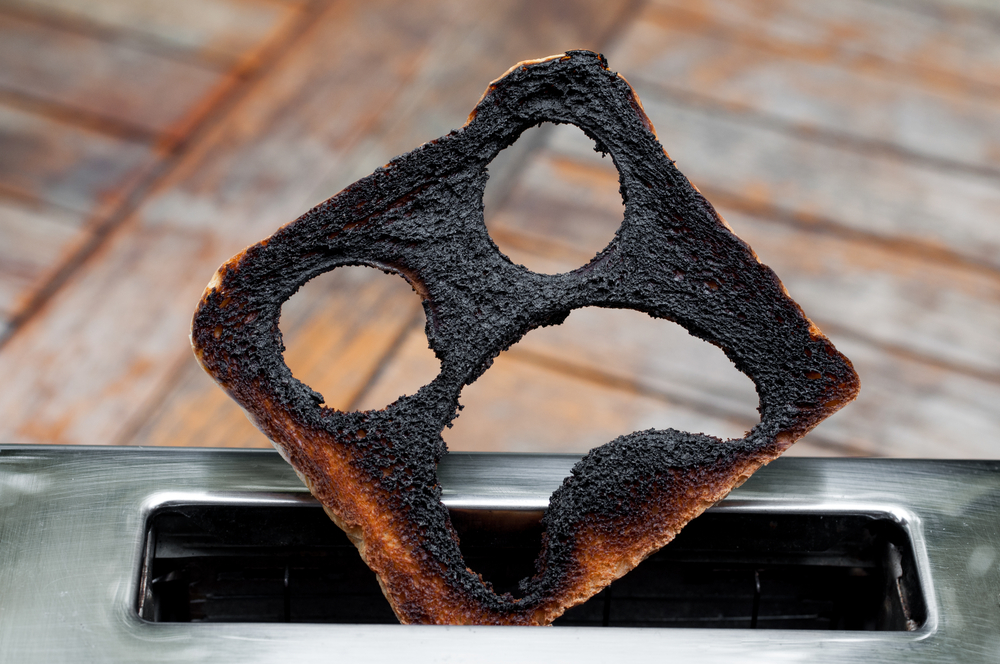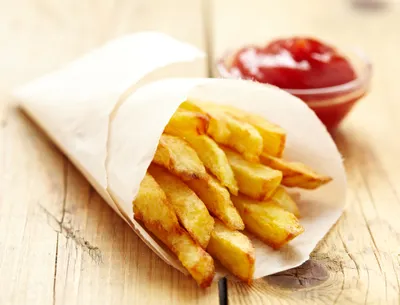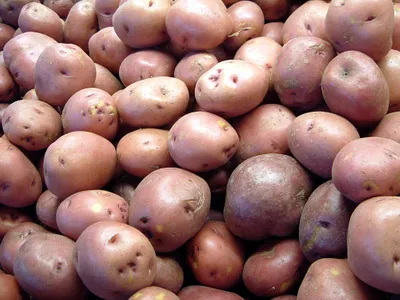If you happened to turn on the news yesterday or today, your senses were likely met with news of the FDA warnings concerning foods high in acrylamides, a chemical created during the cooking process of many popular foods (7000 in total), and one linked multiple times to cancer (in animal studies).
In fact, the FDA considers acrylamide consumption so dangerous that reports consider it a “food safety concern” and so are urging consumers to reduce their intake of the chemical that lies in many favorite foods cooked at high temperatures—such as fried, burned, char-grilled, or overcooked potatoes, pastry, cookies, cereals, dried fruits, crackers, rolls, breads, canned fruits and vegetables, some baby foods and infant formulas, frozen fish, frozen burgers, and frozen chicken fingers, gravies, seasonings, bagels, and pre-made pizza crusts, and (GASP) coffee!
With the health warnings in mind, it’s time we cut down on acrylamide intake by using the following safety measures…
1. Bake vs. Frying Foods
Due to the fact that acrylamide is formed when a sugar and an amino acid (known as asparagine) meld when foods are cooked at high, lengthy temperatures, avoiding the frying of foods and baking them instead may be your best protection.
2. Steam vs. Grilling Foods
In addition to deep and pan-frying foods fried, acrylamides form when foods are overcooked, charred, or burned when left on the stove or grill for extended lengths of time. Steaming foods in moisture will prevent the formation of acrylamides.
3. Follow Cooking Instructions Closely
If you have a taste for fried, roasted, broiled, or baked foods, all is not lost. You can still prepare many of your favorite foods (i.e., frozen potatoes or French fries) using your favorite cooking methods by sticking closely to the manufacturers’ cooking recommendations. For example, closely monitor cooking time and temperature to prevent overcooking, charring, or burning the product. For instance, the FDA claims foods heated below 248-degrees Fahrenheit or lower don’t contain acrylamides.
4. Don’t Burn Your Toast
I’ve always wanted an excuse to toss that charred morning toast and now I have one. The FDA claims that eating burnt toast is considered a health hazard—especially when you consider that more acrylamides exist in darker the toast. Instead, toast bread to a light golden brown and slough off any dark brown or burnt areas.
5. Avoid Processed Chips & Snack Crackers
Unfortunately, according to the American Cancer Society, North America’s favorite snack food—potato chips—contain the highest amount of acrylamides. However, many store-bought crackers and dried bread products (i.e., wheat thins, goldfish crackers, and rye crisp breads) also contain high levels of the chemical compound.
6. Resist That Side of Fries
Ditto goes for deep fried French fries, frozen chicken fingers, and fish sticks, particularly those that are left to cook for longer periods of time in your oven or via fast food restaurants and diners.
7. Employ Safer Cooking Methods
Even though you may find fewer fried, baked, broiled, char grilled, and broiled foods on your family dinner table, you’ll be happy to know that steaming, boiling, and even microwaving foods generate fewer acrylamides in foods and also, in many cases, fewer fat and calories (when you consider steaming foods vs. frying foods).
8. Maintain Food Storage Safety
FDA funded studies also confirmed that the way foods are stored can lower or increase acrylamide levels in cooked foods. For instance, potatoes stored in the refrigerator were shown to contain more acrylamides when cooked compared to those stored in a dark, cool cupboard or pantry.
9. Safeguard During Food Prep
In addition to food storage safety, food preparation can also reduce acrylamide levels once food is cooked. FDA studies linked soaking foods, like chopped potatoes, in clean, cool water 30-minutes prior to cooking, lowered acrylamide levels in fully cooked form.












